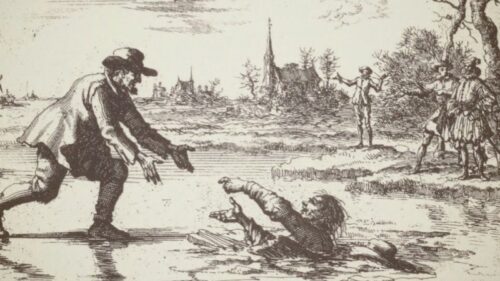-
17. Of the False Church’s Claims (Part 3)
Discordance of Papistic Writers: (1) Whether Peter was at Rome; (2) How Long He was Bishop there; (3) Who Followed Him The common tenet of the papists is. that Peter sat as the chief bishop upon the Roman throne; yet the authors whom they adduce for this purpose greatly differ. For, as respects his arrival in that city, some fix it in the year 41 after Christ; others in the beginning of the reign of the Emperor Claudius; others in the second year of this same Claudius; others in the fourth year; others in the beginning of the reign of Nero; others in the fourteenth year after Paul's conversion, etc., as it is noted in Irenaeus, Orosius, Damasus, Hornantius, Th. Aquinus, The Lives of the…
-
16. Of the False Church’s Claims (Part 2)
Various Arguments from the Holy Scriptures, Showing that Peter was at Rome during the Time Paul was there, Except (as has been Explained above) at the Close of His Life In this demonstration we shall forego the method employed by Sebastian Frank, Gysius, and others, who have written syllogistically upon this subject, and shall confine ourselves solely to the express testimony of (or, at least, plain inferences from) Holy Scripture, upon which we propose to found our arguments. Reason.—First Argument.—When Paul drew near the city of Rome, where he was to be arraigned before Cesar, the brethren [By which of the other apostles these brethren at Rome were converted, is not mentioned in the text; but it may have been that they were converted on…
-
15. Of the False Church’s Claims (Part 1)
The Groundlessness of the Allegations Those Who are Accustomed to Deduce the Roman Succession from Peter the Holy Apostle, and Wherein this Consists of Besides that the three proposed passages are of no use to the papists in proving the supremacy of Peter over the other apostles and the whole Christian church, there follow various reasons and circumstances which show clearly, that the succession of the popes, which they would deduce from Peter, cannot stand, but is unfounded and untrue. For, to come to the point, it cannot be shown, that Peter was ever at Rome, (where the seat of the pope is placed), except at the close of his life, and then he was not received as pope, but was put to death as…
-
14. Of the False Church’s Succession
Of the Evil Success of the Roman Church, Consisting Only in the Succession of the Persons, and Not of the Doctrine Here is to be considered the great error of the Romanists, when they without regarding the true succession of the doctrine build on, and parade the succession of the persons, who either from the beginning of the world, or from the time of the apostles have existed throughout, as they pretend up to the present time; surely a very insignificant matter! ["Trust ye not in lying words," saith the Lord, "saying, The temple of the Lord, The temple of the Lord, The temple of the Lord, arc these" (Jer. 7:4).] For, if they reckon from the beginning of the world, we have shown, that…
-
13. Of the False Church’s Origin
Of the Ungodly and False Church, which is the Opposite of the Church of God, and the Origin, Progress and Succession of the Same through All Times Where God builds a temple, says the old proverb, there the devil builds another in opposition. This has been apparent ever since the beginning of the world. For at the same time that Abel became a martyr of God, and, therefore, a good leader of the children of God, Cain made himself a murderer, and became a leader of the children of Satan, who belong to the ungodly and false church, as members of one body. Gen. 4:8. He was followed by Lamech, one of Cain's descendants, who slew a young man, and afterwards spoke of it to…
-
12. The Third Confession
Third Confession Drawn up at Dort, at a certain peace convention on the 21st of April, 1632, being a statement of the chief articles of our general Christian faith, as the same are taught and practiced throughout in our church. I. Of God and the Creation of All Things Since we find it testified that without faith it is impossible to please God, and that he that would come to God must believe that there is a God, and that He is a rewarder of them that seek Him; therefore, we confess with the mouth, and believe with the heart, with all the pious, according to the holy Scriptures, in one eternal, almighty, and incomprehensible God, the Father, Son and Holy Ghost, and in none…


